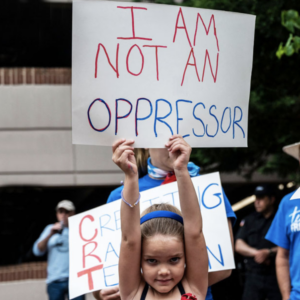When Gov. Chris Sununu signed the state budget with its new anti-discrimination language, the ACLU-NH lead a mass resignation from the Governor’s Advisory Council on Diversity and Inclusion in response.
“You signed into law a provision that aims to censor conversations essential to advancing equity and inclusion in our state [emphasis added], specifically for those within our public education systems, and all state employees,” they said in a letter to the governor.
On Wednesday, state regulators released guidance on how that new anti-discrimination law should be applied in actual classrooms and government employee training. A quick read inspires the question:
What the heck were they so upset about?
The guidance is offered in a simple, easy-to-follow Q&A format, and the law itself is largely summarized in the first Q&A:
Q: What are schools prohibited from teaching students?
A: Schools are prohibited from teaching that one identified group (a group based upon: age, sex, gender identity, sexual orientation, race, creed, color, marital status, familial status, mental or physical disability, religion or national origin) is:
Inherently superior or inferior to people of another identified group;
Inherently racist, sexist, or oppressive, whether consciously or unconsciously;
Should be discriminated against or receive adverse treatment; or
Should not treat members of other identified groups equally.In short, do not teach that a person or a group is inherently oppressive, superior, inferior, racist, or sexist. Teach and treat all equally and without discrimination.
That’s it. So what’s the problem?
Devon Chafee, executive director of the New Hampshire ACLU, says following these rules — treating people equally and not calling all White people racists –is “robbing [students] of an inclusive education and imposing an alternate version of history.”
State Sen. Donna Soucy says if teachers don’t violate these restrictions, it means “stunting the growth of our state and the education of our children,” and “silencing American history.”
Is it really impossible to teach American history without teaching that some groups of people are inherently sexist or racist, based on their race, religion, or sex? And if so — what the heck are teachers teaching?
During the debate over the anti-discrimination bill, NHJournal published the language in the actual legislation in response to frequent media reports using the phrase “divisive concepts” in their coverage. In fact, that phrase never appears in the budget. Supporters of the law believe Democrats like Soucy and the ACLU-NH used the phrase intentionally to mislead people into believing, falsely, that HB 544 — the so-called “divisive concepts” bill — was in the budget signed by Sununu.
It wasn’t.
However, the phrase “white privilege” does frequently appear in New Hampshire classroom instruction, district websites, and in government-mandated training for employees. The Litchfield school district recently apologized for urging students and parents to read Critical Race Theory content by extremist activists like Ibram X. Kendi and Robin DiAngelo.
In the past 48 hours alone, the Biden administration has been forced to retract federal Department of Education mandates for CRT-based content and apologize for sending public schools content from the radical Abolitionist Teaching Network. Among the group’s demands are a requirement that all White teachers undergo “antiracist therapy.”
Its leader, Bettina Love, is popular with progressive school superintendents across the country for claiming that “Whiteness” is a form of oppression and White teachers are guilty of the “spirit murder” of “Black, Brown and Indigenous children.”
New Hampshire Commissioner of Education Frank Edelblut was glad to hear the news.
“It is appropriate that the U.S. Education Department reversed plans to require CRT training and the 1619 Project in our schools,” he told NHJournal. “It is important that our students are taught the complete and accurate history of our country. That has to happen without bias and in a way that enables them to understand this history, good and bad, and the exceptional contributions of the U.S. to the world.
“It is inconsistent with the limited constitutional powers of the federal government to have them weigh in on state K-12 instruction. Those responsibilities belong to the states.”
The media coverage of this law has been either incompetent or dishonest. The claims by opponents about what it does have been either hysterical or utterly false.
Meanwhile, there’s a simple test any concerned citizen can ask to determine what the law actually does: Ask Soucy or the ACLU or NHPR to name one topic or subject a teacher needs to teach, but can’t, under the guidelines above.
NHJournal has been asking this question since the budget was signed. We’ve never received a single answer.





